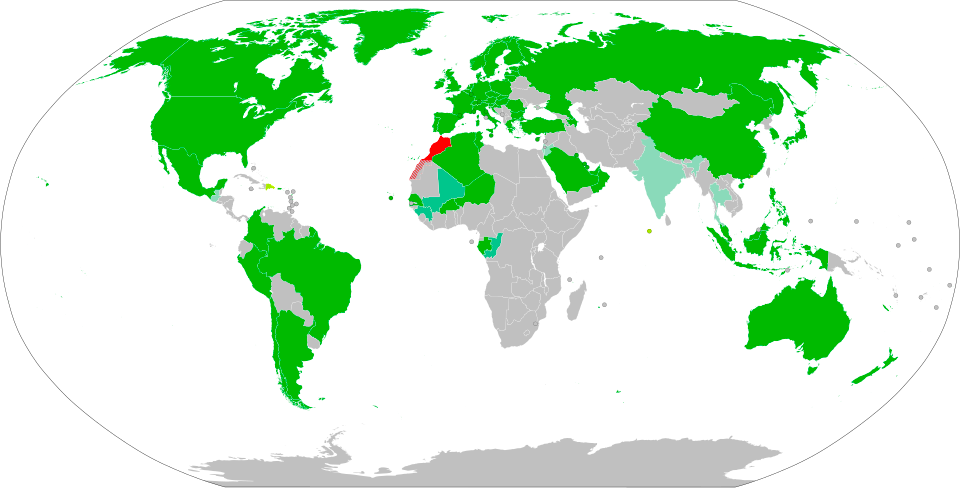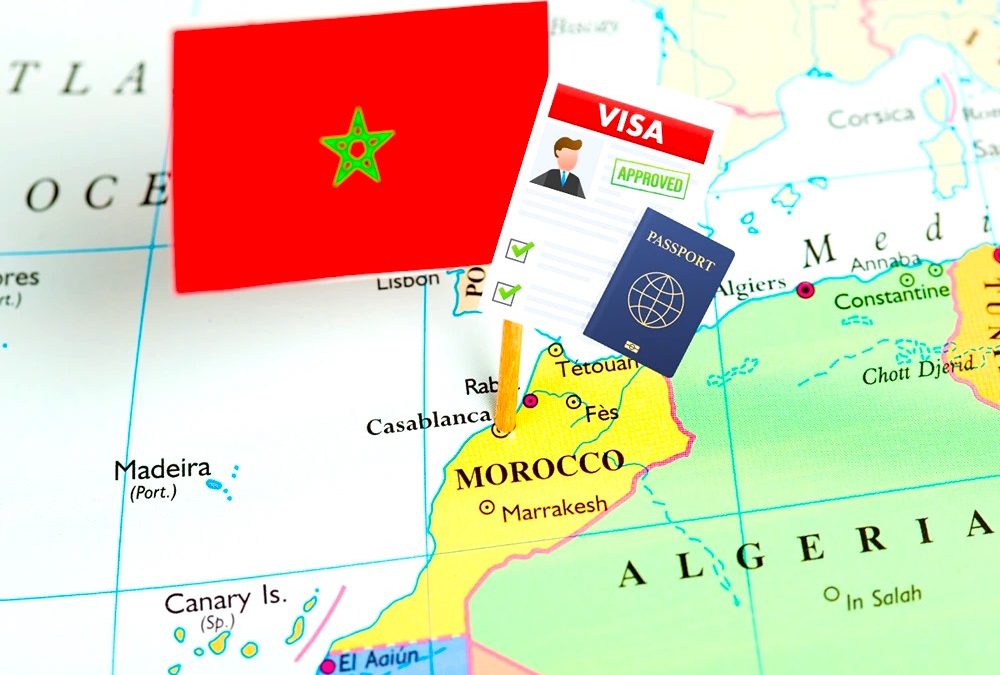
Visa Requirements and Entry Formalities for Morocco
Dreaming of wandering through the colorful souks of Marrakech, exploring the golden dunes of the Sahara, or sipping mint tea in a peaceful riad? Before you pack your bags and head to North Africa’s most enchanting destination, it’s essential to understand the Morocco visa requirements and entry procedures.
For most travelers, entering Morocco is simple and hassle-free, but knowing the rules in advance can save you time, money, and unexpected stress at the border. Whether you’re planning a short holiday, a business trip, or a long cultural journey, being informed about Morocco’s entry formalities ensures your adventure begins smoothly.
This guide breaks down everything you need to know about visas, exemptions, passport validity, and on-arrival processes. We’ll also share useful travel tips and updates to help you confidently plan your trip and avoid common pitfalls.
Countries exempt from morocco visa requirements

Morocco has a welcoming visa policy that makes travel accessible for many nationalities. Citizens from over 70 countries can enter Morocco without a visa for tourism or short business stays. According to the Moroccan Ministry of Foreign Affairs, travelers from countries like the United States, Canada, the United Kingdom, Australia, Japan, and most European Union nations enjoy visa-free entry for up to 90 days.
Other countries in Africa, Asia, and the Middle East may also benefit from visa exemptions or simplified e-visa processes, depending on bilateral agreements. It’s always best to check the latest list of visa-exempt nationalities through official Moroccan sources before traveling, as policies can change periodically.
Even if your country is exempt from needing a visa, you’ll still need to meet standard entry formalities, such as having a valid passport, proof of accommodation, and sometimes a return or onward ticket. This ensures smooth entry at Moroccan borders and airports.
Quick tip: Always confirm the current visa exemption rules on Wikipedia’s page about the Visa policy of Morocco or directly on the Moroccan Consulate or Embassy website in your country for the most accurate updates.
Tourist Visa for Morocco: Application Process and Documents Required
If your country isn’t on the visa-exempt list, don’t worry, obtaining a tourist visa for Morocco is a straightforward process. The Moroccan government offers both traditional visa applications through embassies and consulates, as well as an e-visa system for citizens of eligible countries.
According to the official Morocco eVisa Portal, travelers can easily apply online by filling out a form, uploading necessary documents, and paying the processing fee electronically. Most applications are processed within three business days, making it a convenient option for those planning their trips on short notice.
Required Documents
When applying for a Moroccan tourist visa, you’ll typically need the following:
- A valid passport (with at least six months of validity beyond your stay).
- A completed visa application form.
- Passport-sized photos taken recently.
- Proof of accommodation, such as hotel bookings or an invitation letter from a Moroccan host.
- Travel itinerary or return flight reservation.
- Proof of sufficient funds for your stay.
For traditional visa applications, documents are submitted to the nearest Moroccan Embassy or Consulate, which you can find via the Ministry of Foreign Affairs of Morocco.
Processing Time and Validity
The standard tourist visa usually allows a stay of up to 90 days from the date of entry. However, processing times can vary depending on your country of residence, so applying a few weeks in advance is always a good idea.
Morocco e-Visa: Fast and Convenient Option
For many travelers, the Moroccan e-visa system provides a fast and convenient alternative to traditional consulate applications. Launched to simplify travel, it enables eligible visitors to apply online from anywhere in the world, eliminating the need for in-person appointments at Moroccan embassies.
How to Apply
The application process is straightforward via the official Morocco eVisa Portal:
- Create an account on the portal.
- Fill out the online application form, providing personal details, passport information, and travel plans.
- Upload required documents, including passport scans, photos, and proof of accommodation.
- Pay the processing fee online using a secure payment method.
- Receive your e-visa by email, usually within 3 business days.
Once approved, print a copy of the e-visa and present it at Moroccan entry points along with your passport. Border officials will verify your documents, and you’re ready to start your Moroccan adventure.
Benefits of the e-Visa
- Time-saving: No need to visit an embassy or consulate.
- Convenient: Apply from anywhere in the world.
- Quick processing: Most approvals are completed in just a few days.
Pro tip: Even with an e-visa, ensure your passport has at least six months’ validity, and always carry proof of accommodation or onward travel to prevent delays at customs.
Entry Formalities at Moroccan Borders: What Travelers Should Know
Entering Morocco is generally smooth, but being prepared can save you time and stress at the airport or land borders. Knowing the entry formalities ensures your trip starts on the right foot.
Passport Requirements
All travelers must carry a valid passport with at least six months’ validity from the date of entry. Some travelers may also be asked to show a return or onward ticket, especially if their stay is short.
Customs and Declarations
Moroccan customs are straightforward but have clear regulations:
- Currency: Travelers must declare amounts exceeding 100,000 MAD (Moroccan Dirham) or its equivalent in foreign currency.
- Prohibited items: Narcotics, certain weapons, and counterfeit goods are strictly forbidden.
- Personal items: Reasonable amounts of personal items for travel are allowed duty-free.
Health Requirements
Currently, Morocco does not impose mandatory vaccinations for general travelers, but it’s always wise to check updates via the World Health Organization or your local health authorities before traveling.
Tips for Smooth Entry
- Keep all travel documents handy: passport, visa (if required), accommodation proof, and travel itinerary.
- Be polite and cooperative with border officials.
- If traveling with children, ensure you have the necessary consent documents if only one parent is present.
By following these guidelines, you’ll move through immigration quickly and begin your Moroccan adventure without delays.
Tips for Ensuring a Smooth Visa and Entry Process
Traveling to Morocco is exciting, but a few simple preparations can make the visa and entry process hassle-free. First, always check the latest Morocco visa requirements well before your trip. Policies can change, and staying updated ensures you won’t face unexpected issues at the border. Official sources like the Moroccan Ministry of Foreign Affairs or the Morocco eVisa portal provide accurate and reliable information.
Next, make sure your passport is valid for at least six months beyond your planned stay. This is a standard requirement and can prevent being denied entry. Additionally, keep copies of all important documents, including your visa, accommodation bookings, and travel itinerary. Having these documents ready can speed up the border process and help in case of any questions from immigration officers.
If you are using the e-visa system, apply well in advance to account for any unexpected delays in processing. Even though most e-visas are approved in a few days, unforeseen technical issues or document errors can cause delays. For travelers visiting Morocco during peak tourist seasons, applying early is particularly important.
Finally, be aware of customs regulations and prohibited items. While Moroccan customs are generally straightforward, declaring large sums of money or restricted items is mandatory. Being polite, patient, and prepared when interacting with border officials also helps ensure a smooth entry. By following these tips, you can start your Moroccan journey relaxed and ready to explore.
Conclusion
Understanding the Morocco visa requirements and entry formalities is an essential step in planning a hassle-free trip. Whether you are from a visa-exempt country or need to apply for a tourist visa, being informed about the rules, preparing your documents, and following the official procedures will ensure smooth passage through Moroccan borders. Paying attention to passport validity, customs regulations, and e-visa options can save you time and stress, allowing you to focus on the adventure ahead.
Morocco is a country of vibrant markets, stunning landscapes, and rich cultural heritage. From exploring the medinas of Marrakech and Fes to trekking the Sahara dunes or visiting UNESCO World Heritage sites like Ait Benhaddou, every traveler can find a unique experience. By taking the time to understand entry requirements, you’re setting the stage for an unforgettable journey.
For more information and to plan your trip, contact us here: Start your Moroccan adventure with confidence and enjoy every moment of this magical destination.
If you’re ready to plan your visit, the team at Morocco Travel Road can assist with visa guidance, travel planning, and tailored itineraries to ensure a smooth and enjoyable trip.
Start your Moroccan adventure today!
Contact us and navigate entry formalities with ease for a seamless journey.

